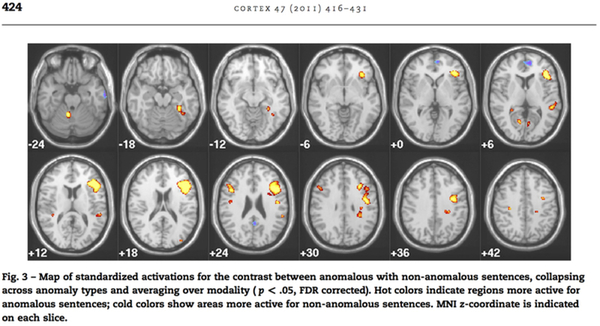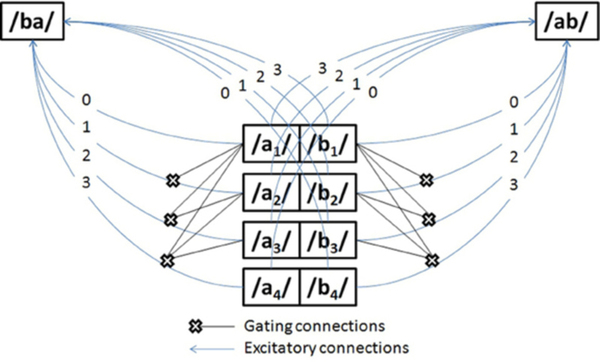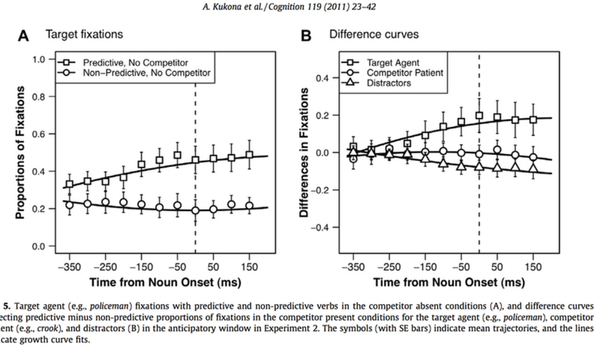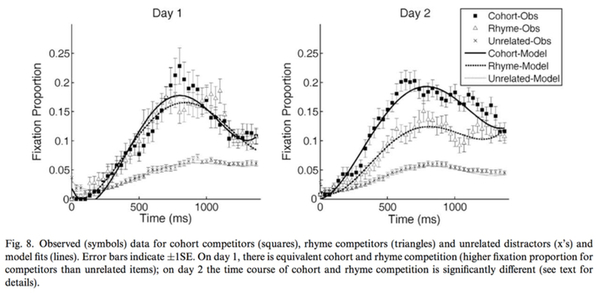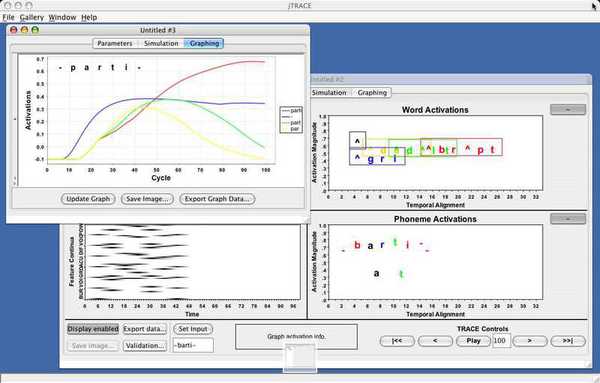Research. Cognition and action "in the wild" occur in rich contexts. Our research explores how information from multiple sources is integrated in naturalistic tasks, using a combination of behavioral and neural methods and computational modeling. Our research interests include: neurobiology of language; speech perception; spoken word recognition; sentence processing; reading; language development; developmental and acquired disorders of language; computational models as theory-building tools; developing comprehensive understanding of language plasticity over the lifespan from cognitive, neural and genetic perspectives through interdisciplinary collaborations. For more details, see our publications. Here is a representative subset of current projects:
- Developing cognitive models of human speech recognition that operate on real speech (the EARSHOT model, with Linkai Peng, Sahil Luthra, Jay Rueckl, Christian Brodbeck, Monty Escabí, Rachel Theodore, Kevin Brown [Oregon State])
- Implementing formal models of predictive coding for human spoken word recognition (with Monica Li, Kevin Brown [Oregon State], Bryce Rogers [Oregon State], & Thomas Hannagan)
- Analyzing computational models of spoken word recognition to assess whether putative hallmarks of predictive coding are observed (with Sahil Luthra, Christian Brodbeck, Phoebe Gaston, Emily Myers, Anne Marie Crinnion, Thomas Hannagan)
- Using lexically-mediated compensation for coarticulation to compare predictions from computational models (undergrads Giovanni Peraza-Santiago, Kei'ana Beeson, and Sahil Luthra, Dave Saltzman, & Anne Marie Crinnion)
- Investigating how listeners accommodate talker-specific variation in the mapping from acoustics to phonological percepts (Dave Saltzman, Sahil Luthra, Emily Myers)
- Developing a unified phonological and semantic computational model of spoken word recognition from a network science framework (with Kevin Brown [Oregon State], Ken McRae [U. Western Ontario], Elliot Saltzman [BU], Eiling Yee [UConn], Anne Marie Crinnion [UConn], Phoebe Gaston [UConn])
- Time course of phonological competition in spoken word recognition from toddlers to adults (with former PhD student, Prof. Liz Simmons [Sacred Heart U.])
- Predicting individual differences in reading ability from the time course of spoken word recognition (with PhD students Monica Li and Anne Marie Crinnion)
Opportunities. The lab admits new PhD students most years (applications to the Language & Cognition PhD program are due December 1). We almost always have room for undergraduate students who want to be involved in research. We occasionally have openings for postdocs or technicians (see Positions). Prospective students, postdocs, or lab techs should feel free to send inquiries to Jim Magnuson.
News
- New chapter
- New paper — a preregistered replication (attempt)
- Do X in Y: Convert values to subject-relative z-scores in R
- New-ish publication
- New publication — EARSHOT model of human speech recognition
- New content for research in cognitive neuroscience
- Postdoc search extended to 11/15/2019
- Seeking a postdoctoral research associate
- 3 lab presentations / proceedings publications at CogSci2019
- New paper from Monica Li et al.
